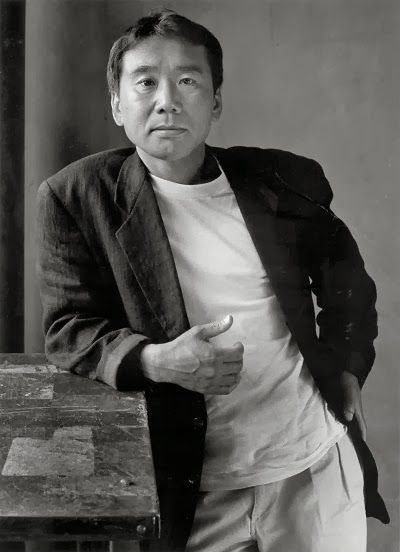List
is a new category in the blog. If you want to know how it works, see the About Us page. Also in that page are the other review policies of the blog.
Haruki
Murakami is a best-selling Japanese author. He writes novels, short story collections,
and some non-fiction from time to time. He has won numerous awards and his
works have been translated to several languages.
So
far, I’ve read eight of his books -- 1Q84, After Dark, Blind Willow Sleeping
Woman, Hard-Boiled Wonderland and the End of the World, Kafka on the Shore, Norwegian
Wood, The Elephant Vanishes, and The Wind-Up Bird Chronicle. If you didn’t read
the review policy for List posts, let me tell you this: the entries in this
list are subject to change, as I read more Murakami books and overthrow the
current Top 3.
But
as far as I’ve read, these three books are Murakami’s best.
3. 1Q84
1Q84, as far as I know, is Murakami's longest work. My copy is 925 pages long.
Personally, this is Murakami’s most
surreal novel, with its concept of alternate realities. The story arcs and subplots
are also the most complex and imaginative I’ve seen in Murakami’s books.
That’s a lot of superlatives for
1Q84. But why is it just ranked third? Indeed, 1Q84 appears to be more
prominent compared to its sister books, but it definitely has its own flaws
that prevent it from being Top 2 or 1.
This book has the tendency to
overcomplicate things, and the pacing seems to drag especially in the middle
part. In fact, the middle part is so dragged and expanded that the last
one-third of the book seems to be rushed, giving the impression of a premature
ending.
2. Hard-Boiled
Wonderland and the End of the World
Hard-Boiled Wonderland and the End
of the World is a 1985 novel. It alternately narrates two stories -- Hard-Boiled
Wonderland, and the End of the World.
This is arguably Murakami’s most
underrated book, mostly because it precedes Murakami’s more-known works. The
primary reason why this is included in my personal list is the prose and
writing style. They are very different compared to Murakami’s other books, or
at least that’s how I see them. It’s either the original Japanese text is
inherently different or the English translation I’ve read just turned out
different.
But whatever the case may be, it
doesn’t change the fact that this book has real quality prose. Another thing
that makes it different is its experimentation on science fiction and cyberpunk
elements, while still maintaining the typical surreal atmosphere that Murakami
is known for.
1. Norwegian Wood
Norwegian Wood is arguably Murakami’s
most iconic book. This is somewhat ironic, because this book is the least that
showed Murakami’s writing style. Really, this book has an entirely different
style when compared to Murakami’s other books. It’s also the book that has the
least surrealism. It’s very direct and has no blatant symbolisms.
Despite all that, this is the book
that made Murakami a certified best-selling author. The book has a lot of heart
and soul, and the reader will surely feel them in the direct writing style and
prose. Norwegian Wood is just beautifully written.
The
characters and what they’re going through are the primary driving forces of the
story. The sequences are very tragic and depressing, even more when compared to
heavyweights like Kafka on the Shore and The Wind-Up Bird Chronicle. That’s
what I really like about Norwegian Wood. It has the same tragedy seen in
Murakami’s other books, yet the direct and non-surreal approach makes it
different from the rest.
__________
Haruki Murakami
All in all, Haruki Murakami is one
of my favourite writers. His stories are very dreamy and tragic at the same
time, and that gives off a unique sensation. His greatest strengths are how he
builds atmosphere in his settings and how he weaves truly depressing stories.
His weakest point is his tendency to dwell in random details and drag certain
sequences. But even this weak link isn’t a major problem. Murakami’s other positive
traits counterbalances it, and what results are books that are, indeed, good
reads.
Related
posts:






I remember Norwegian Wood being made into a movie a few years, but I have never read the book, or any of Murakami's books. If I had time, I might check out Norwegian Wood sometime though.
ReplyDelete-James
Yes it was, but I haven't seen it. I read some negative reviews about it though. I don't know. I would not be seeing it because I don't want to ruin the images in my head.
DeleteMurakami is an interesting writer! You should check him out if you have the time.